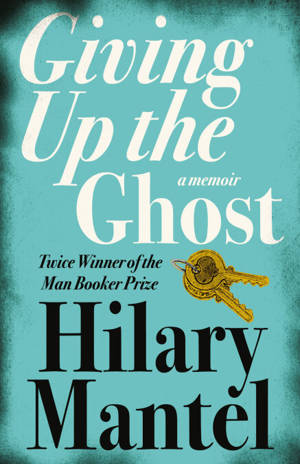
- Retrait gratuit dans votre magasin Club
- 7.000.000 titres dans notre catalogue
- Payer en toute sécurité
- Toujours un magasin près de chez vous
- Retrait gratuit dans votre magasin Club
- 7.000.0000 titres dans notre catalogue
- Payer en toute sécurité
- Toujours un magasin près de chez vous
Description
‘Like Lorna Sage's Bad Blood … A masterpiece’ RACHEL CUSK
At no. 58 the top of my head comes to the outermost curve of my great-aunt, Annie Connor. Her shape is like the full moon, her smile is beaming; the outer rim of her is covered by her pinny, woven with tiny flowers. It is soft from washing; her hands are hard and chapped; it is barely ten o'clock and she is getting the cabbage on. 'Hello, Our Ilary,' she says; my family has named me aspirationally, but aspiration doesn't stretch to the 'H'.
Giving Up the Ghost is award-winning novelist Hilary Mantel's wry, shocking and uniquely unusual five-part autobiography of childhood, ghosts, illness and family.
It opens in 1995 with 'A Second Home', in which Mantel describes the death of her stepfather, a death which leaves her deeply troubled by the unresolved events of childhood. ‘Now Geoffrey Don't Torment Her' begins in typical, gripping Mantel fashion: 'Two of my relatives have died by fire.' Set during the 1950s, it takes the reader into the muffled consciousness of her early childhood, culminating with the birth of a younger brother and the strange candlelit ceremony of her mother's 'churching'. In 'The Secret Garden' Mantel moves to a haunted house and mysteriously gains a stepfather. When she is almost eleven, her family flee the gossips and the ghosts, and resolve to start a new life. 'Smile' is an account of teenage perplexity, in a household where the keeping of secrets has become a way of life. Convent school provides a certain sanctuary, with tacit assistance from the fearsome 'Top Nun.' In the final section, the author tells how, through medical misunderstandings and neglect, she came to be childless, and how the ghosts of the unborn, like chances missed or pages unturned, have come to haunt her life as a writer.
At no. 58 the top of my head comes to the outermost curve of my great-aunt, Annie Connor. Her shape is like the full moon, her smile is beaming; the outer rim of her is covered by her pinny, woven with tiny flowers. It is soft from washing; her hands are hard and chapped; it is barely ten o'clock and she is getting the cabbage on. 'Hello, Our Ilary,' she says; my family has named me aspirationally, but aspiration doesn't stretch to the 'H'.
Giving Up the Ghost is award-winning novelist Hilary Mantel's wry, shocking and uniquely unusual five-part autobiography of childhood, ghosts, illness and family.
It opens in 1995 with 'A Second Home', in which Mantel describes the death of her stepfather, a death which leaves her deeply troubled by the unresolved events of childhood. ‘Now Geoffrey Don't Torment Her' begins in typical, gripping Mantel fashion: 'Two of my relatives have died by fire.' Set during the 1950s, it takes the reader into the muffled consciousness of her early childhood, culminating with the birth of a younger brother and the strange candlelit ceremony of her mother's 'churching'. In 'The Secret Garden' Mantel moves to a haunted house and mysteriously gains a stepfather. When she is almost eleven, her family flee the gossips and the ghosts, and resolve to start a new life. 'Smile' is an account of teenage perplexity, in a household where the keeping of secrets has become a way of life. Convent school provides a certain sanctuary, with tacit assistance from the fearsome 'Top Nun.' In the final section, the author tells how, through medical misunderstandings and neglect, she came to be childless, and how the ghosts of the unborn, like chances missed or pages unturned, have come to haunt her life as a writer.
Spécifications
Parties prenantes
- Auteur(s) :
- Editeur:
Contenu
- Nombre de pages :
- 272
- Langue:
- Anglais
Caractéristiques
- EAN:
- 9780007354917
- Date de parution :
- 16-12-09
- Format:
- Ebook
- Protection digitale:
- Adobe DRM
- Format numérique:
- ePub

Les avis
Nous publions uniquement les avis qui respectent les conditions requises. Consultez nos conditions pour les avis.






